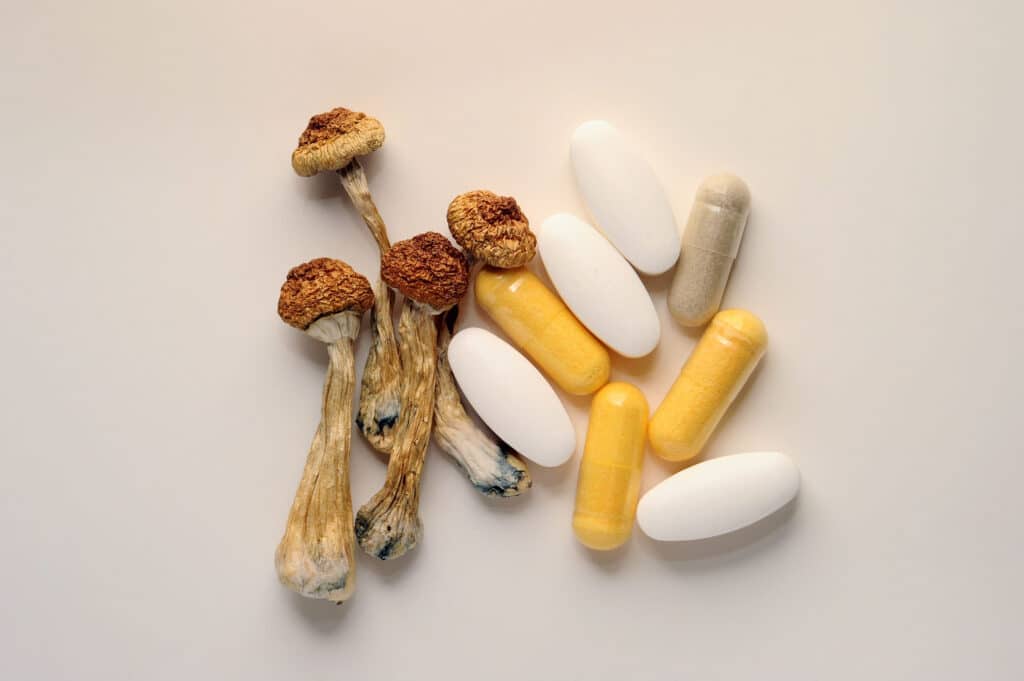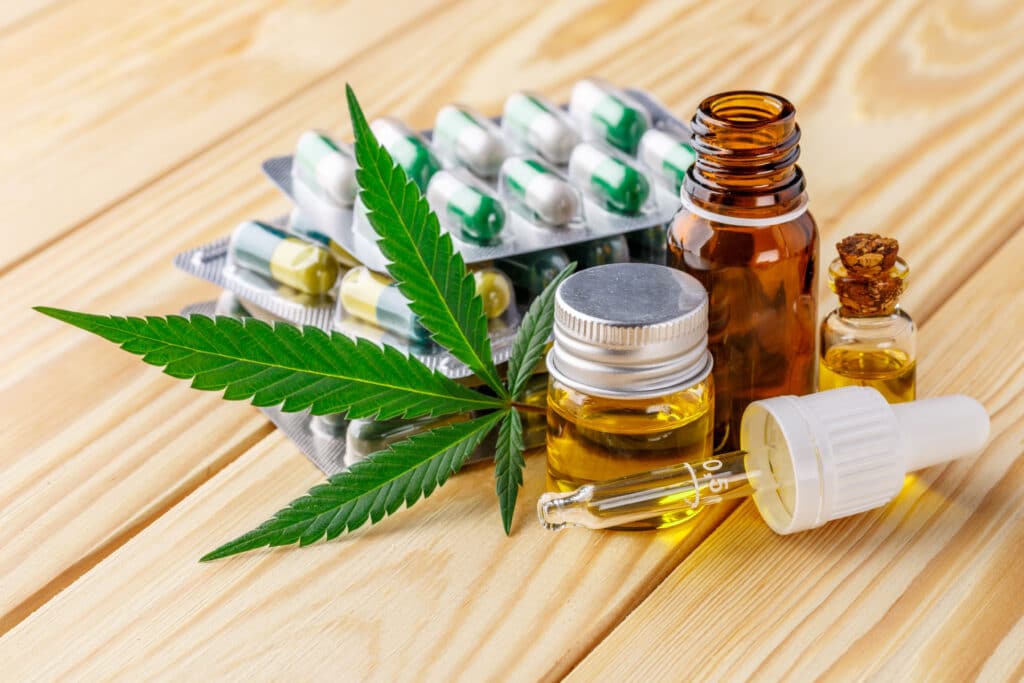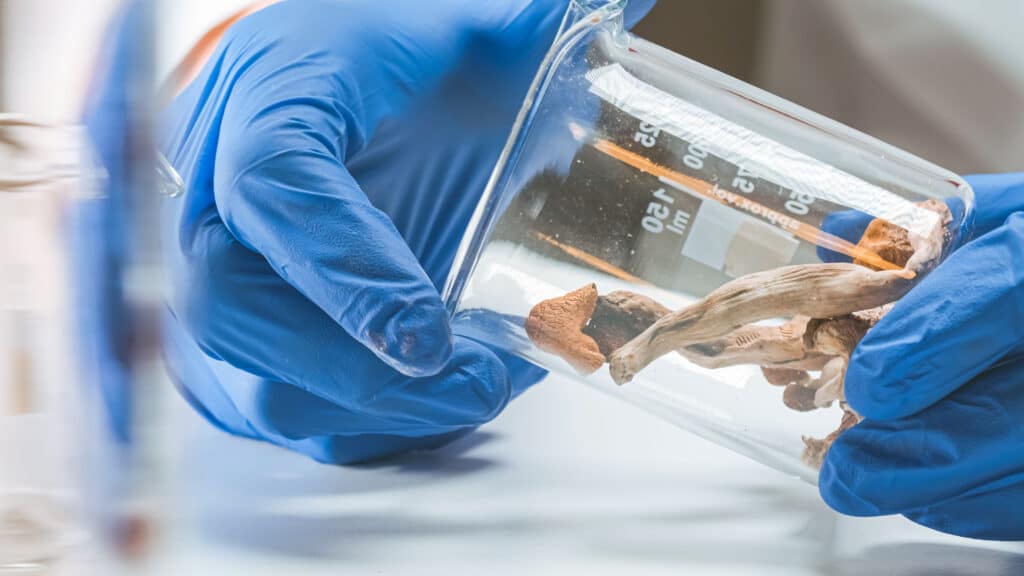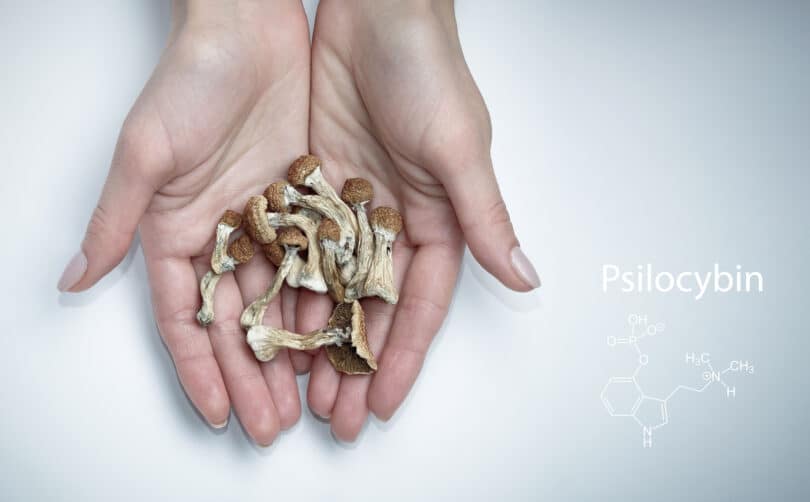There are reforms taking place all over the US for cannabis and psychedelics (like psilocybin); And Even Indiana Might Be Involved.
Indiana study group pushing for medical psilocybin
As of right now, there is no legal change in Indiana drug policy, and no bill that’s being promoted. The current news story is like an opening to a performance; but it’s the kind of story that indicates something might be coming. And that ‘something’ has to do with loosening restrictions around the use of psychedelics for mental health issues.
In June, an Indiana study committee was put together to investigate different subjects related to mental health and treatment, including the use of psychedelics like psilocybin. The agency was tasked with looking at compounds already given ‘breakthrough therapy’ status by the FDA; a status given to experimental products, meant to get them to market faster. The group was also tasked with investigating already existent state policies related to psilocybin therapy.
On September 11th, the group – Interim Study Committee on Public Health, Behavioral Health and Human Services; put forth a recommendation to the legislature to adopt a pilot program meant to investigate the use of psilocybin as a treatment for mental health issues. According to the study authors, the “prevailing view is that psilocybin should not be a Schedule I drug and has proven medical benefits.”

It recommended that “the Indiana General Assembly take an approach that strikes a balance between access, research, and prudence,” and that state institutions should “conduct a pilot clinical study utilizing established therapeutic protocols as a starting point to explore the efficacy, safety, and feasibility of psilocybin assisted therapy in Indiana.”
The current version is a revised version from the original draft copy. One of the changes made, was a line taken out that said psilocybin “is not a drug that is a risk for overdose and is not addictive.” While the study group seemed onboard with pretty much everything else related to psilocybin therapy; it did not want to follow suit with current and past literature that relate to psilocybin as a nonaddictive drug, with virtually no death or injury toll.
The recommendations are specifically for psilocybin-assisted therapy, which means its not just about giving the drug; but administering therapy with it. And its mainly intended, as per the report, to help “veterans, first responders, and others experiencing mental illness.”
Right now, when it comes to psychedelics, Indiana laws are very harsh. One gram or less of some drugs can incur 60 days in jail, and $500 in fines. If anyone is found with 28 grams or more (an ounce), it’s automatically considered a felony, and the person then faces 10-30 years in prison under an ‘intent to distribute’ charge.
Why is this a little strange?
Whether Indiana actually adopts a policy for psilocybin pilot studies, is currently undecided. But one of the things to stand out about this current recommendation, is that Indiana isn’t even a state that allows either recreational cannabis, or that has a comprehensive medical cannabis program.
In fact, Indiana is one of the most restrictive states for weed. Although it does allow limited medical access in the form of CBD (which can be prescribed for any illness); it never adopted anything more expansive. Apart from Marion Country, which decriminalized cannabis in 2019, Indiana is one of the only states to have no comprehensive medical program, or statewide decriminalization measure.

There have been initiatives in the state to broaden medical cannabis, but none have passed. Indiana is not a state where recreational measures have made it to the legislature at all. It is, however, a state that has not outlawed cannabinoids like delta-8 THC. One bill that was on the docket last year, and which would have outlawed compounds like delta-8, died because of the chance it would work to outlaw CBD as well.
Possession of any amount of cannabis is a misdemeanor crime in the state; which comes with 180 days of jail time, and a fine up to $1,000. If a person gets caught with under 30 grams, but already has a drug offense, they face a year in prison and $5,000 in fines. Above 30 grams with a prior drug charge incurs a felony charge. This is met with 6 months to 2.5 years in prison, and up to $10,000 in fines.
To knock it up a notch, the report made some amount of comparison to medical marijuana; and took the stance that psilocybin therapy is a promising solution, and more robust than what medical marijuana offers. A similar study group heard testimonies last month related to the benefits of personal marijuana possession, but made no similar recommendations. According to the more recent report in promotion of psilocybin, it says the following:
“Many people conflate increased access to psilocybin assisted therapy with the issue of increased access to medical and recreational cannabis. However, the committee hearing made it clear that the evidence for psilocybin assisted therapy is promising and significantly more robust and the two issues are unrelated.”
While it is 100% true that marijuana and psilocybin are fundamentally different drugs; their respective legalization efforts are similar in many ways, and so are some of the benefits they offer. There are plenty of points of overlap in medical research between the two. Further to that, they both signify a change in opinion about illegal compounds; and that tends to put them in the same category of illegal compounds gaining greater acceptance. They are also similar in that neither is related to a direct death or injury toll.
Another confusing point
Sure, there’s nothing that says cannabis acceptance and psychedelics acceptance have to go hand-in-hand, or that there’s any particular order to legalize them. So there’s nothing saying that Indiana can’t go ahead and legalize psilocybin pilot programs, while leaving cannabis as a substance illegal for most uses. It’s just not usually seen for a state with such a tough stance against marijuana, to start talking about psychedelics.

But there’s another troubling aspect of this situation, beyond drawing such a strange line between cannabis and psychedelics legalization measures. Sen. Ed Charbonneau, the committee chair for the project, said at the meeting in which the recommendations were given, that he had already contacted researchers at Indiana University Health and Purdue University, in regards to a project about psychedelic research.
“I have had discussions with both IU Health and with Purdue University. I spoke to 150 pharmacy students at Purdue, and afterward had a chance to speak with the dean of the pharmacy program…and he texted Dr. Jerome Adams, who’s now at Purdue University.” He continued, “We’ve had a talk. They’re interested in possibly moving forward, but that’s just a preliminary talk.”
All this sounds good until the Dr. Jermone Adams part. While cannabis and psilocybin legalization are not the same thing; there is something a little off about asking for help about medical psychedelics, from a guy who previously stated that medical marijuana doesn’t exist. The former Trump surgeon general was asked to step down by Biden; and subsequently became a presidential fellow and executive director of health equity initiatives at Purdue. Its difficult to believe that a medical professional who pushes that medical cannabis doesn’t exist, would be totally onboard with medical psilocybin.
While it might not be promising to rely on the help of a University that works with such a high level advocate for keeping drugs like marijuana illegal; and while it makes very little sense to push medical psychedelics, while not accounting for cannabis; these recommendations do create an interesting situation, in what is one of the strictest states for drugs overall.
Conclusion
What are the chances that Indiana will actually allow a pilot program for medical psilocybin within the state? It’s hard to say. It could be that Indiana is showing a change in things, and simply doing it in a non-standard order. Or it could be that we’re looking at a desire to push pharmaceutical products, with no thought of actually legalizing magic mushrooms ever.
The study group recommends that the state creates this program as part of the 2024 legislative season. The recommendations were adopted at a meeting in October; but whether they will actually lead to anything, remains to be seen.
Welcome weed fans. Thanks for making your way to our independent drugs publications Cannadelics.com; which focuses on the burgeoning cannabis and psychedelics worlds of today. Swing by regularly for updates on top stories; and subscribe to our Cannadelics Weekly Newsletter; so you’re always on top of what’s going on.








